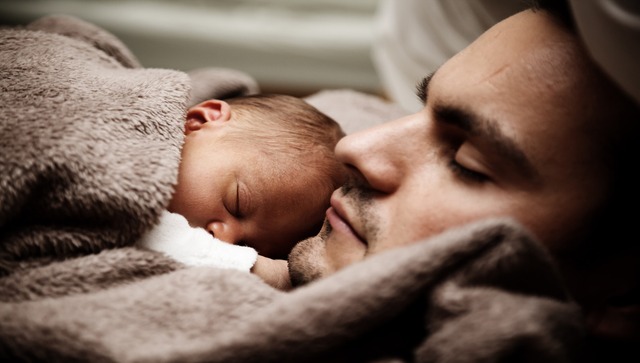Do you feel more sleepy in the winter? If you also struggle to leave the bed in the colder season, then you are not alone. Studies have shown that we may need more sleep in the winter. While humans do not hibernate, our body takes cues from the Sun, thus affecting our sleep habits. Let’s take a closer look. Sleeping in winters At least a third of American adults said they sleep more in the winter, as per research by the American Academy of Sleep Medicine (AASM). According to a study of sleep duration examining the 2003-2016 American Time Use Survey, the average duration of sleep for Americans rises by 1.9 minutes on weeknights and 6.5 minutes on weekends in the winter, reported The Washington Post. A paper published earlier in the journal Frontiers in Neuroscience found that people get more REM (rapid eye movement) sleep in the winter. The REM phase of sleep is marked by more dreaming and faster heart rate and breathing than in other stages, noted CNN. [caption id=“attachment_13648282” align=“alignnone” width=“640”] Our sleeping habits can change in the winter. Pixabay (Representational Image)[/caption] Effect of seasonality on sleep Researchers from the Charité Medical University of Berlin say that the human body’s clock relies on the Sun. As the length of day and light exposure changes, our bodies craves the sleep that usually accompanies the night. The study published last February by these researchers found that 188 participants who underwent sleep studies at Berlin’s St. Hedwig Hospital slept an hour longer in the winter than in the summer, but this was not considered statistically important. However, they did get 30 minutes longer REM sleep, which is directly linked to the circadian clock, during winter, as per The Guardian. Dr Raj Dasgupta, an associate professor of clinical medicine in California, told CNN, “If you feel like sleeping more in the winter, you’re not alone”. “Sleep needs for most adults are somewhere between (seven to nine) hours per night, and that is consistent no matter how cold or dark it gets outside. However, it is common to feel like you are sleeping more during the winter due to the fact that we lose an hour of daylight when we enter standard time, which is associated with the early onset of darkness,” he added. ALSO READ:
No more nightcaps: How even a glass of alcohol affects our sleep How light impacts sleep Our circadian rhythms are set by the amount and timing of light our eyes see from the Sun. “Our bodies receive cues from the Sun when it comes to our circadian rhythm, meaning that when it is bright outside we tend to be active, but when the Sun goes down, you may tend to feel tired. The decrease in sunlight causes an increase in melatonin, a hormone made in the body that regulates sleep-wake cycles,” Dr Dasgupta was quoted as saying by CNN. The fall in sunlight leads to a rise in melatonin, which helps promote sleep. Metabolism also increases in colder weather, triggering the need to sleep more in winter, reported CNET. [caption id=“attachment_13648292” align=“alignnone” width=“640”]
The fall in sunlight leads to a rise in melatonin, which encourages sleep. AFP (Representational Image)[/caption] Robert Soler, a former NASA engineer who studied the impact of lack of light in space on astronauts’ sleep cycles, told Healthline that the type of light we get also affects our sleep. “The Sun cycles through sunrise, daytime, sunset, (and) nighttime light, which all have different colours that our body interprets as stimuli for different energy levels and activities. Bluer light in the morning – like a morning sky – gives a boost of energy and helps get you to get out of bed. Daytime light, or bright light, with cooler tones help signal to your body that it’s time to be alert and help with productivity. Then at the end of the day, the amber colours of a sunset prepare you for sleep.” Light also affects our the quality of our sleep. “REM sleep is highly affected by light and darkness, so when during the winter months we have less light, the body is going to basically overcompensate by giving more REM sleep,” Dr Joshua Tal, a New York City-based clinical psychologist specialising in sleep issues, told CNN. Importance of sleep Experts suggest
sleeping between seven to nine hours a night for adults. Research has shown that sleep deficiency is linked to dementia, depression, diabetes, heart disease, high blood pressure, and other health issues. According to Jamie Evan Bichelman, a clinical psychologist, lack of sleep in the winter “traps us in a vicious cycle of requiring more sleep to compensate for the lack of quality rest the night before.” We should listen to our bodies to decide if it needs more rest. Beth Malow, a professor of neurology and pediatrics, told The Washington Post, “We should take that signal that our bodies are giving us, respect it and try to get that extra sleep that our bodies are telling us to get.” With inputs from agencies
The human body’s clock relies on the Sun, say researchers. As the length of day and light exposure changes, our bodies crave the sleep associated with night. This is why we might feel the need to rest more in the winter months
Advertisement
End of Article


)

)
)
)
)
)
)
)
)



